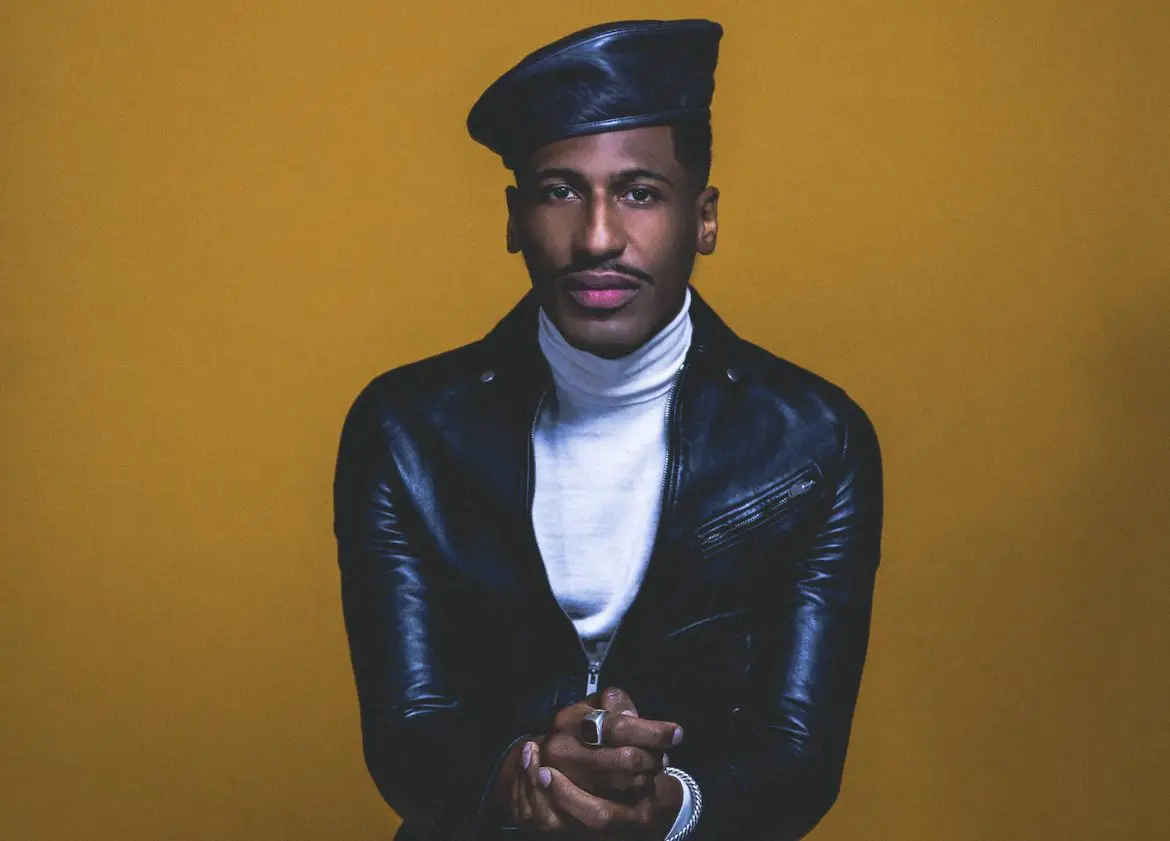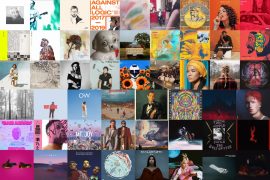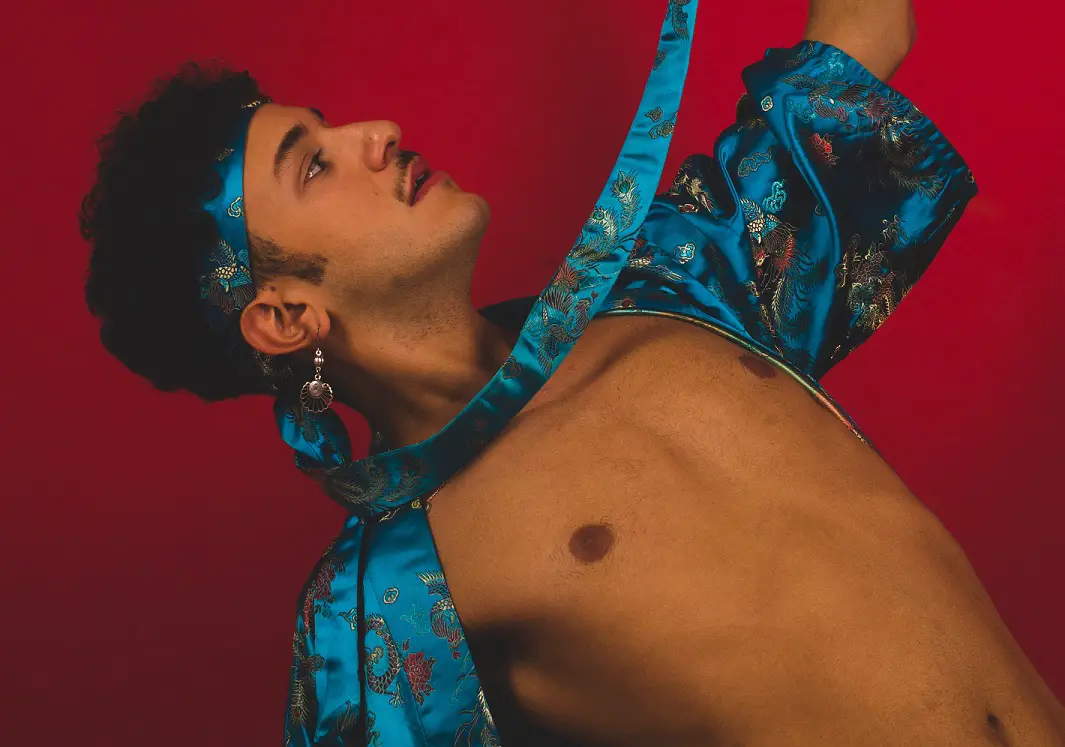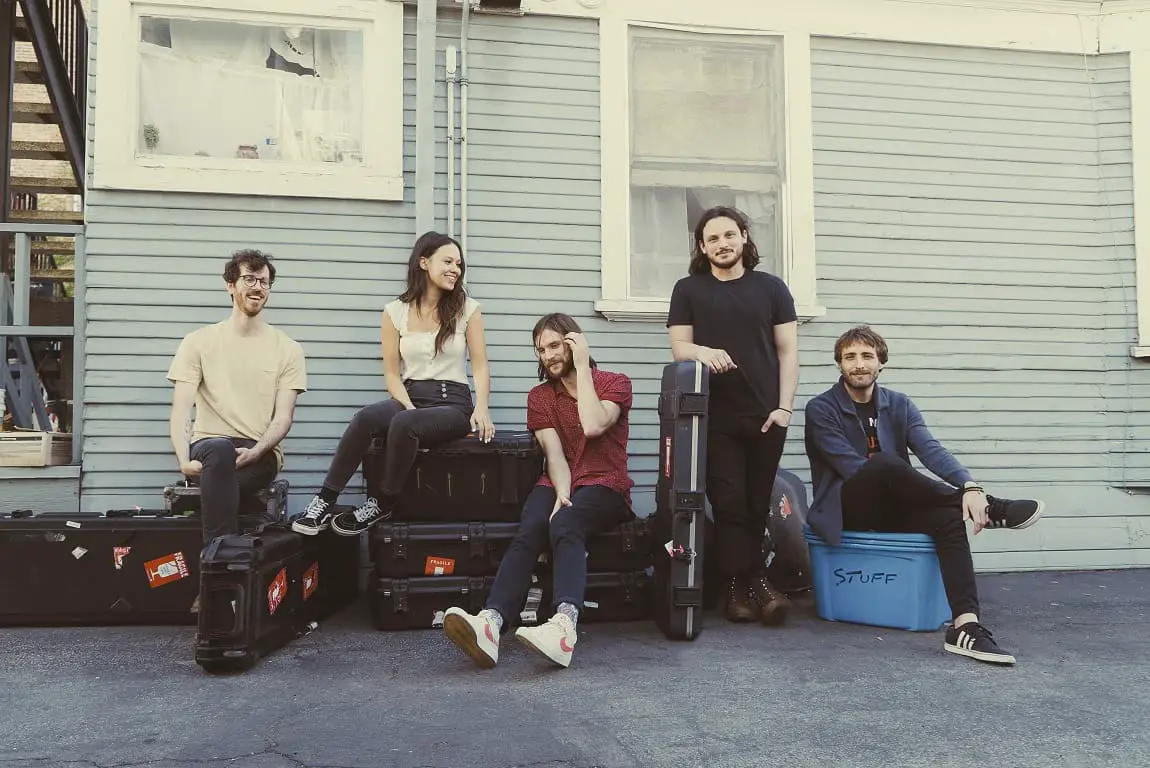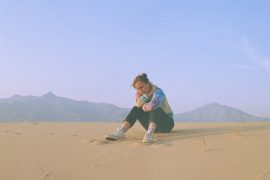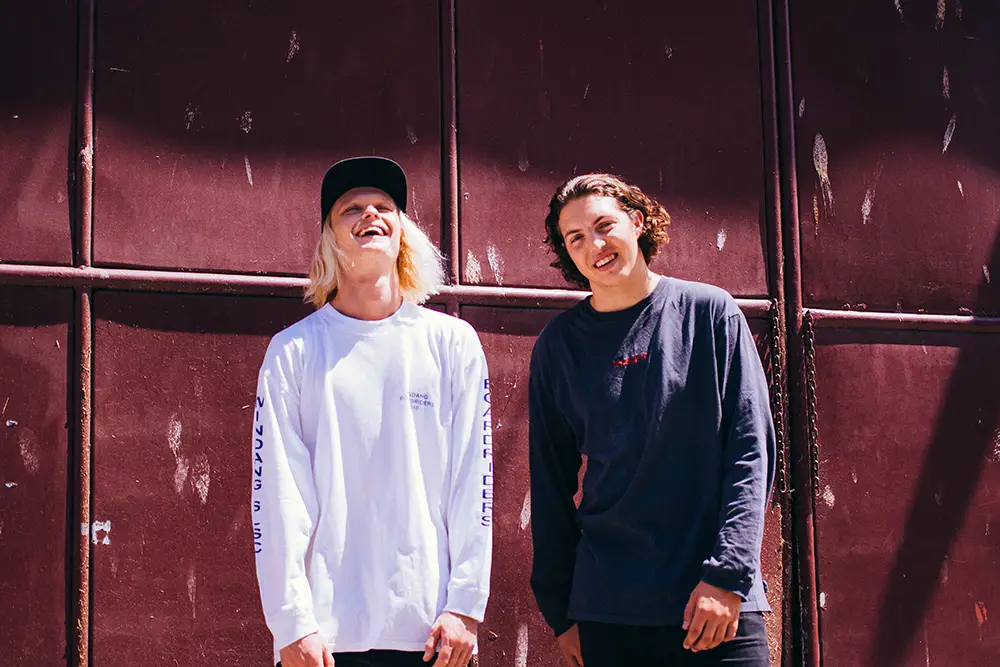Jon Batiste speaks to Atwood Magazine about his deeply personal new album ‘WE ARE,’ a soul-stirring and genreless record ready to uplift, heal, challenge, and inspire a new generation to believe in themselves and work toward their dreams.
Stream: “I NEED YOU” – Jon Batiste
I think a lot of the music that we make fits into genres, and I wanted to make music that was not going based on that system, and just music that existed, how I heard it, and this music is a representation of genreless music that’s just about the story, and it’s not trying to fit into any box or anything like that.
Jon Batiste didn’t set out make a record that met the moment.
Recorded back in 2019, WE ARE was conceived as a culmination of Batiste’s life up to the present: From growing up in New Orleans to reaching adulthood in New York, Batiste embarked on a creative journey into his story and the sounds that shaped him along the way. He blended inspirations far and wide – incorporating his jazz background alongside elements of soul, hip-hop, R&B, pop, and more into what he proudly maintains is a “representation of genreless music.” The resulting set of songs and stories are his most personal and vulnerable work yet, and it just so happens that their messages – of hope; of love; of community; of compassion – are exactly what the world needs most right now. Timeless and yet utterly timely, Jon Batiste’s WE ARE arrives into a fractured world ready to uplift, heal, challenge, and inspire a new generation to believe in themselves and work toward their dreams.
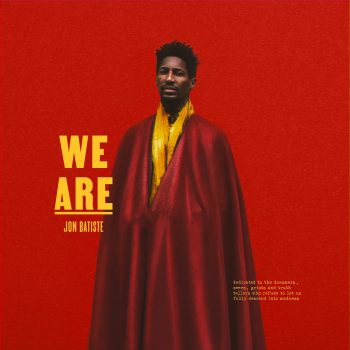
The ghetto is full of stars
Bless them, shine from afar
On days when it’s hard, and always
Nana knows how to sing
And sooth the soul
From summer to fall, and always
Joy, she won’t let it go, oh, no
Joy, that she doesn’t know
We are, we are, we are
We are the golden ones
We are, we are, we are
We are the chosen ones…
Released March 19, 2021 via Verve, WE ARE shines as a radiant beacon light and love. Jon Batiste’s expansive, transformative fifth solo studio album arrives at a pivotal moment in time for the artist as he celebrates Golden Globes and Critics’ Choice Awards wins, as well as a recent Academy Award nomination, for the Disney and Pixar film Soul – for which he composed and performed a number of original songs.
“I think it was a great way to get jazz music into the public consciousness in a new way,” Batiste says of the film. “A lot of times jazz is put in this historical retelling and is framed in the past, and Soul is in the future – Soul is speaking to the future, it’s blending animation with Jazz, with the kind of sound design, electronic music that is a part of the score. And it’s putting it in a place in the culture that’s global and universal while still having homages to the past.”
On the heels of this comes WE ARE, a record that, per its creator, “celebrates Black American culture and music while exploring themes of lineage, authenticity, excellence and evolution.” Batiste is joined by Mavis Staples, Zadie Smith, PJ Morton, Trombone Shorty, and countless more notable musicians across thirteen genre-bending tracks, but at the heart of the record is an artist and activist shedding all pretense and sharing his true self – scars and all.
“It’s a culmination of my life to this point. When you make something, it’s always about the moment that you’re in, you’re channeling that, that time in your life, it’s a timestamp,” Batiste reflects, “and this album in particular, given all the things that were going on around me when I was making it, feels like it’s the most representative of where I’m at in the… If you wanna call it the business, in terms of just where I’m at as a creative, and as an artist.”
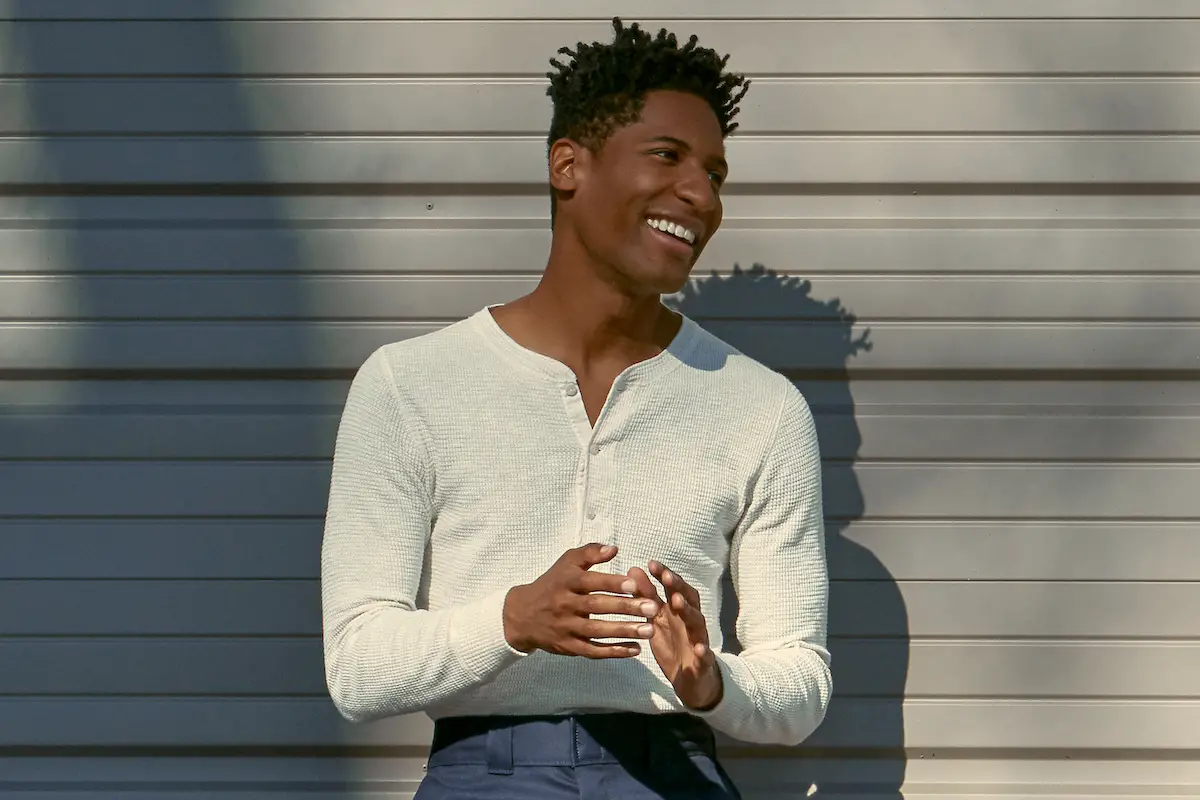
WE ARE‘s title derives from its opening track, which Batiste originally released ahead of Juneteenth 2020. “That wasn’t even the final version of the song, but we just felt that it needed to come out,” he says. “I felt it was what I wanted people to hear. That message was something that I wanted people to hear during that time.”
“I felt like it was something that was given to me by God to say in the song, in the future, there’s gonna be a whole lot of people singing it,” Batiste beams. “It feels like an anthem in that way, that you could hear people singing in a stadium, and I wanted to create something that spoke to that vision that I had. It all hit me at one time, and it just came out that way.”
The country is full of stars
But they’re in a war
Lying in the dark
Just hopin’ to medicate
But painfully, it changes fate
Joy, he won’t let it go, oh, no
Joy, that he doesn’t know
What he doesn’t know
We are, we are, we are
We are the golden ones
We are, we are, we are
We are the chosen ones (We are)
Batiste’s soulful voice smolders and soars as he proclaims, “We are the golden ones, we are the chosen ones,” immersing listeners in a Gospel-tinged reckoning full of hope and possibility. It’s a powerful message that continues to resonate to this day, and one that embodies the spirit of the album WE ARE as a whole.
From soul-stirring serenades and sweeping anthems, to gorgeous piano ballads (“Movement”) and buoyant celebrations (“I Need You”), WE ARE is a beautiful and spellbinding achievement – a triumphant soundtrack filled with endless wonder, that so perfectly captures the zeitgeist of 2021.
Jon Batiste spoke to Atwood Magazine about the musical and lyrical inspirations driving his new album, his experience leading The Late Show with Stephen Colbert over the past six years, collaboration, community, and more: Dive into WE ARE in our special interview below, and listen to Jon Batiste’s breathtaking new album, out now!
SOUL is out on Digital March 23rd and on Blu-Ray™ and DVD March 29th.
We done a lot of living
We working overtime
Don’t need another million
You got that gold mine
I love the way you’re livin’
‘Cause you so genuine
You got that something special
Didn’t you know?
I just need you, you, you
Met you when I was a lil’ nappy head boy
And I never put down my alto saxophone, yeah
Buckjumpin’ down on the boulevard
I couldn’t wait to blow my own horn (woo!)
It ain’t wrong for you to play along
Playing this song ’til you die, come on
In this world with a lot of problems
All we need is a little loving
Thank you, thank you, oh, you make me
Thank you, thank you for your love
– “I Need You,” Jon Batiste
— —
:: stream/purchase WE ARE here ::
Stream: ‘WE ARE’ – Jon Batiste
A CONVERSATION WITH JON BATISTE
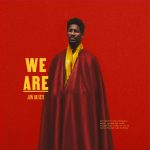
Atwood Magazine: Jon, thank you so much for your time today. How have you and your loved ones been doing throughout this pandemic?
Jon Batiste: Thank you for asking. I think it’s a good time to take stock in what you wanna be doing and really make it happen because you’re in this time where you’re isolated, so it causes reflection.
I couldn't agree more. Well first of all, congratulations on the Grammy win! What does Soul, the movie and soundtrack, represent for you?
Jon Batiste: I think it was a great way to get jazz music into the public consciousness in a new way. A lot of times jazz is put in this historical retelling and is framed in the past, and Soul is in the future, Soul is speaking to the future, it’s blending animation with Jazz, with the kind of sound design, electronic music that is a part of the score. And it’s putting it in a place in the culture that’s global and universal while still having homages to the past. So I think it was a really innovative film beyond it just being a jazz film and having the first Black lead, and it being something that is obviously a Pixar film, it was just innovative in general and how it was put together and what it represents.
Not to mention it's the kind of film that's going to be seen by children and adults across the country, and the world.
Jon Batiste: Yes, a global film, and people responded to it for the first week to have numbers in the billions, in terms of your streams in one week to break those records like that, and for it to be a movie about the soul, and is a movie about God. And where God and jazz and animation meet, I’ve never seen that before. [chuckle]
It's great to showcase jazz as being far from a historical artifact.
Jon Batiste: It’s one of those things that we’re taught to believe – that things either exist in the past or the present, but I think that the past always has the ability to be the future, and everything exists on this continuum. That’s why things oftentimes have a “revival” as we call it, or like a Renaissance or “something is reborn” in a different context. And it’s really just something that existed in the past, so I really do believe that. For me, when I make music, that’s what I’m doing, a lot of the time is taken from the past and blending it with the present to create the future.
There's an artist we showcased a lot recently named Joy Denalane. She's a soul artist based in Germany, and she's been dubbed the German queen of soul. You listen to her music and it wholeheartedly carries that ''classic soul'' sound. This music is today; it doesn't have to be defined by an era that it originally came out of – it is continuing to be innovative and living and breathing at our moment in time.
Jon Batiste: Yes, everything that we do exist on a spectrum of time, obviously things happen in the past that we still do, like we still use fire. [chuckle] There’s a lot of things that you could consider, but is the act of using fire modern or ancient? [chuckle] No, it’s just a part of our existence. But I think when we come to creativity and art, we like to categorize it in the same way that we would categorize computer hardware and software, where it’s like 20 and then it gets better. Well, in that case, it does improve upon the technology, but art and creativity and the sociology of human existence is not technological. It’s cumulative.
I like that a lot. You've been working on The Late Show for over five years now, proving yourself time and again as a true musician of all trades, genres, styles, times, instruments – you name it. How has your experience on The Late Show changed you?
Jon Batiste: It was a window into the greater entertainment world, in the corporate world, you’re dealing with so many cross-branded, cross-medium experiential things with a late night show, ’cause you have sponsors and you have ads that you’re running, and you have all of these different artists that are coming through, and you have all these different politicians that are coming through, and you have all of these different actors and all of the range of public figure, and then you have this camera crew and lighting crew and stage hands, a tech team and graphics team. All of these different teams are coming together to build this thing, and I think that getting an understanding of how that’s done and being in the belly of the beast as the other guy on stage every night, is one of those things that… You just get an understanding of it almost as if you’re going to get a degree, and what this whole entertainment industrial complex is all about, and I think that that changed my perspective on what I represent in the culture and in the world, because being exposed to so much of the world and the culture, and current events every day.
I realize that I’m in a very unique position, it’s almost like those people who are soothsayers or prophets, and you can just speak to something and represent something that is not in the present, but will be the future.
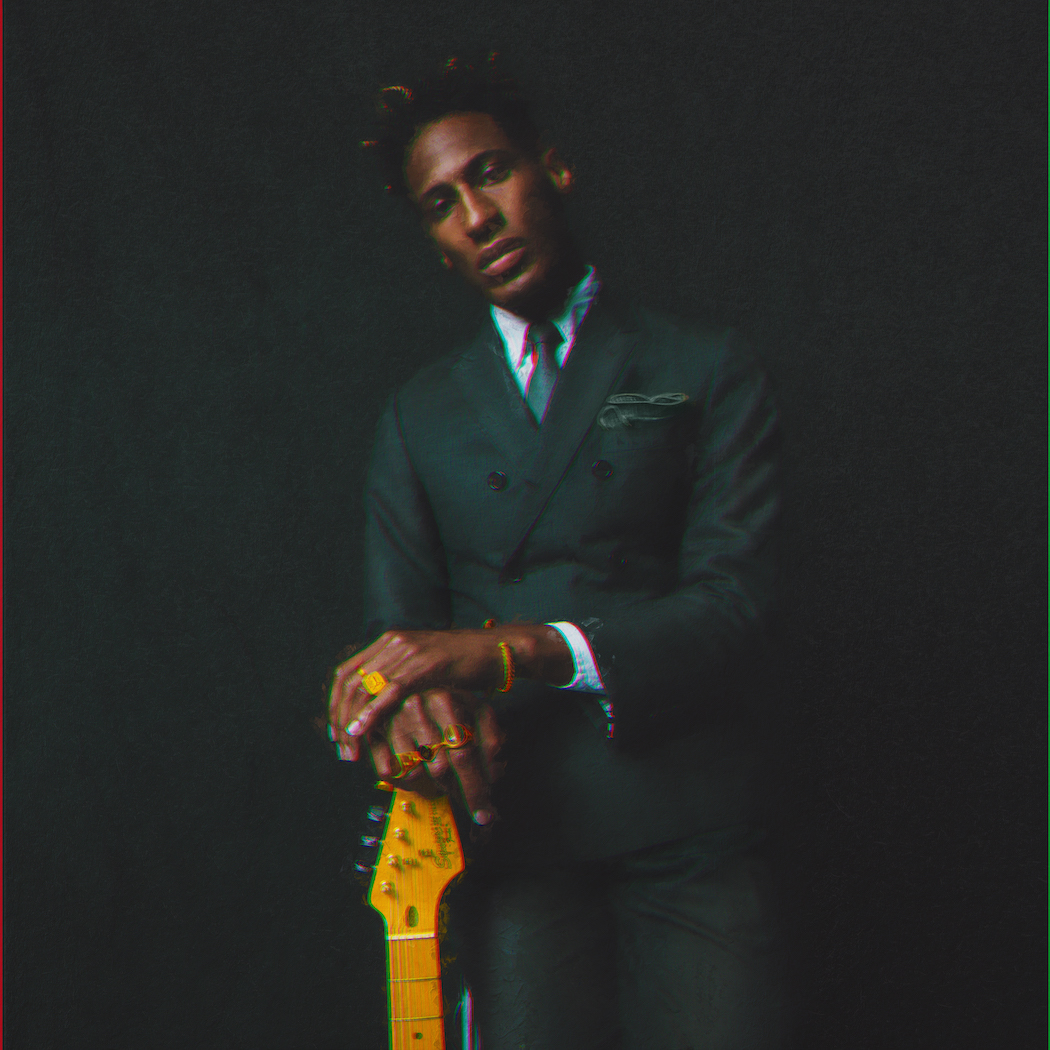
The way that you talk about it, it sounds like it's almost an intensive seminar that you just never break away from... Granted, it's doing what you love, every night. Did it have an impact for you on your own songwriting, musical recordings, or your performance?
Jon Batiste: Well, I record albums all the time that I don’t release, and I wait for the right time to put them out. Hollywood Africans, I had recorded largely as something that was kind of an exercise and just exploring creativity, but the next album really is a response to being on the show, in that I made it in my dressing room for the blueprint of it, I made in my dressing room over six days, and then over eight months of doing the show at the same time as recording the album, I finished it.
So this is the one – We Are is your response to the life you've been living in the public spotlight, so to speak, in recent years?
Jon Batiste: Well, I don’t even know if I would necessarily consider it to be a response, more than, it’s a culmination of my life to this point. When you make something, it’s always about the moment that you’re in, you’re channeling that, that time in your life, it’s a timestamp. And this album in particular, given all the things that were going on around me when I was making it, feels like it’s the most representative of where I’m at in the… If you wanna call it the business, in terms of just where I’m at as a creative, and as an artist.
From the outset, it's clear how special, how personal, and how deep this music resonates for you from its creator. Can you share the story behind this set of songs?
Jon Batiste: Well, I think a lot of the music that we make fits into genres, and I wanted to make music that was not going based on that system, and just music that existed, how I heard it, and this music is a representation of genreless music that’s just about the story, and it’s not trying to fit into any box or anything like that.
What span of time was this record made in? When was it recorded?
Jon Batiste: September 2019, we recorded it. We started recording it, and then it was done in May of 2020.
This album feels so timely in light of the past year we've had. You named this album We Are, and in the very first song we hear you singing, ''We are the golden ones, we are the chosen ones.'' Can you talk about the symbolism behind your album title and the meaning of these words, for you?
Jon Batiste: Yes, I felt like it was something that was given to me by God to say in the song, in the future, there’s gonna be a whole lot of people singing it. I had a vision of people singing it together. It feels like an anthem in that way, that you could hear people singing in a stadium, and I wanted to create something that spoke to that vision that I had. It all hit me at one time, and it just came out that way.
''We Are'' is one of the first songs you released from this record, around June 2020. It might just be my experience with it, but it felt so perfectly timed to the moment.
Jon Batiste: Well, we wanted to release it at that time, but it was something that felt right to put out at that moment. That wasn’t even the final version of the song, but we just felt that it needed to come out. I felt it was what I wanted people to hear. That message was something that I wanted people to hear during that time.
I'm grateful that you put it out there as somebody who loves music. I love the slower, moodier aspects of ''Cry,'' you're saying, ''Why sometimes, does it feel like all I wanna do is cry, cry, cry,'' you're essentially wailing these words. How did this song come about?
Jon Batiste: You know the music is something that speaks to a subconscious emotion, and it felt like something that we all were feeling in 2020, and the music just brings it to the surface in a way that I think, nothing else can. It’s a universal language.
I can appreciate that. ''Whachutalkinbout'' seems to mesh so many different styles together, like you were just talking about. I hear the influence of surf, punk, rock, hip hop, jazz, all together in this one song.
Jon Batiste: Oh my goodness. I was playing the drums in the studio, and then I went to the base, and then picked up the guitars, and then I played all of the instruments, and I had this vision of someone talking to the TV, myself, or maybe me, a younger me, speaking to the TV and seeing what’s going on, and then, jumping into the TV, and as you go through life, you go through all of these different levels, different levels to still hold tight to your identity and your personhood, and it’s like a video game. And that section in the… After the second verse and chorus goes into this 16-bit video game overture, and I put that together with Pomo, the producer, and we made that, and it’s kinda just like a… It connects it to the way that life is a game, in the sense, the video game is a tonal allegory to all of the things that come into your path when you go in to all the different levels of life, sometimes you don’t even know it… I don’t even know “Whachutalkinbout.”
That's fascinating. As a pianist myself, I was blown away by “Movement.” Can you share a little bit about that song too?
Jon Batiste: Yes, that’s a part of the boyhood, movement, adulthood, the three-part suite, and Movement is the time of progression in my life when I was at Juilliard and when I was studying music and going through all of the different movements of finding your voice and finding your footing and everything, when you’re 17-18 years old, and that is a representation of that period felt like… And just like ”Boyhood” is what it felt like to grow up in New Orleans. That’s almost what it felt like… That’s what it felt like to grow up in New York.
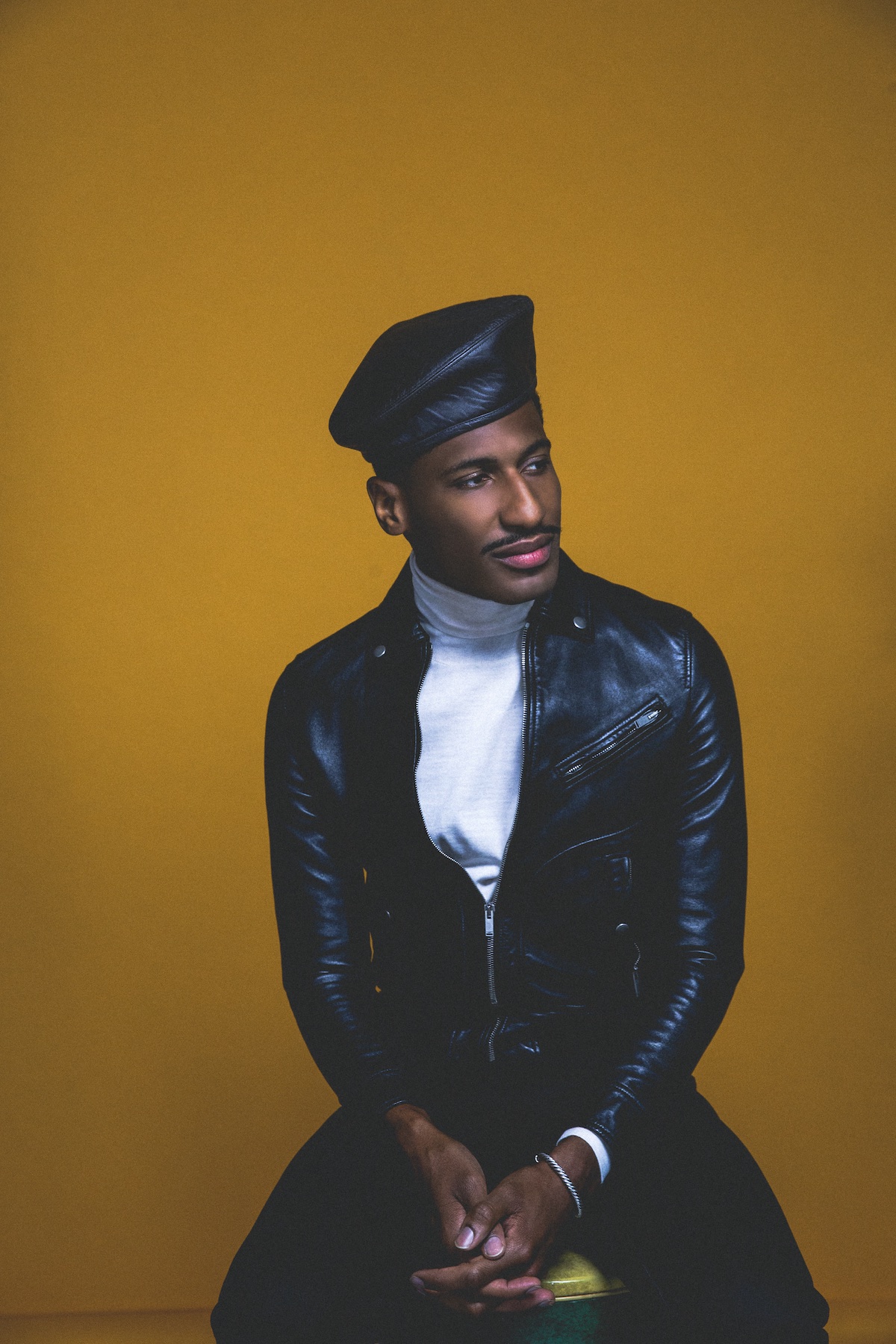
You mentioned earlier how you see this album as kind of the culmination of your life up to this point. Of course there are metaphorical aspects to that, but there's also a literal aspect in there too, isn't there?
Jon Batiste: Absolutely, there’s metaphor and there’s the literal, and I think the beauty of music is… There is also the visceral. You can create these feelings with the music, and then you can tell these stories with the lyrics, and between those feelings in the stories and references, you’re covering all of the different emotional territory.
Did your vision for this record change as you progressed with it?
Jon Batiste: It came to me in a lot of ways, earlier than I started recording it. The idea of synthesizing all of the things that I like into a contemporary, pop, contemporary genre-less album is something that’s always been an interest to me, to find the code, to crack the code to that, but I think that the synthesis of it all really is something that I needed to decide I wanted to focus on, and this time felt like the right time to do that.
When I listen to especially the first few songs, I hear hints of a lot of funk and soul music's past. ''We Are,'' ''Cry,'' ''Tell the Truth''... I think about James Brown, Sly Stone, Stevie Wonder, among many others. Did you have these influences in mind when you were creating this music?
Jon Batiste: I don’t know if it was something that was literally at the top of mind while doing it, or more, if more, just the way that they’ve been embedded into my consciousness as a music listener. I had… Obviously, you know, Quincy Jones helped with this project, and Mavis Staples and Stevie Wonder, someone who I’ve talked to in making this project. So I think that those are people who, beyond just their music, as people who I know, and have admired and have some relationship that I can draw from, it comes out.
This album feels like a very communal record. Can you talk about collaboration in music and your relationship with music as a communal experience?
Jon Batiste: I think all music is… It has to be collaborative, even if you’re doing it like printing, you’re playing all the instruments on every, and you’re writing the songs, and you still have someone to engineer and mix and master the record, and even if you were to do all of that, it’s still a collaboration with your audience, and their response to you, whether it’s in live performance, or whether it’s for your next thing that you make, the back and forth of that is a collaboration. You’re obviously always leading it and the tip of the spear, so to speak, but it’s not something that you can do alone. Music and creativity in that way, is meant to be social, and I think that highlighting that can only make for a better experience for both the creatives and the listener.
I love that. Finally, what do you hope listeners take away from We Are, and why do you feel like now is the right time to release this record?
Jon Batiste: I just want them to take away a feeling of love in community, ’cause we need that more now than ever.
Thank you so much. Congratulations on this record. It's truly beautiful, and I'm looking forward to seeing it out in the world!
— —
:: stream/purchase WE ARE here ::
— — — —

Connect to Jon Batiste on
Facebook, Twitter, Instagram
Discover new music on Atwood Magazine
? © Justin French
:: Stream Jon Batiste ::

